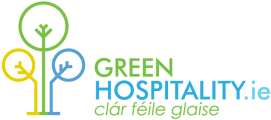War Against Waste Heats Up – Government Review Commences
Minister Bruton Starts Single Use Plastic Bottle Review
Review into how best to achieve 90% collection target commissioned
Examination of Irish Deposit and Return Scheme included
The Minister for Communications, Climate Action and the Environment, Minister Richard Bruton T.D. is today (Monday the 28th of January) announcing a review which will consider how we can deliver a 90% collection target for single use plastic bottles in Ireland. This review will also examine the possibility of introducing a Deposit and Return Scheme (DRS) and how this might operate in an Irish context.
Plastic waste makes a major contribution to the chronic problem of pollution, damaging our cities, countryside and oceans.
Minister Bruton is committed to significantly increasing our overall plastic recycling rate to 55% by 2030. For single use plastic drinks bottles, the government are committing to a collection rate of 90% by 2029.
The review will consider what is the best model to achieve this ambitious 90% target. The analysis will look at the current Irish waste collection system, international best practice in this area and how Ireland can bridge the gap from the targets already being achieved to the new, higher target. Once the review has been completed and an approach agreed,the Minister will announce the actions which need to be taken.
Launching the review, Minister Bruton said,
“On average, every person generates approximately 58kg of plastic waste per year. Plastic waste makes a major contribution to the chronic problem of pollution, damaging our cities, countryside and oceans.
“If we are serious about making Ireland a leader in responding to climate change, we must tackle our plastic waste. We must stretch ourselves and commit to more ambitious plastic collection targets, if we are to put ourselves on a more sustainable path.
“Today, I am am announcing a review to look at how we can achieve a 90% collection rate for single use plastic bottles. The introduction of a Deposit and Return Scheme, is one option the review will look at. I want to learn from international best practice in this area. Once the review has been completed, I will move quickly to set out the actions we must take in this area.”
Notes to Editor
The government have consistently exceeded the current EU plastic recycling target of 22.5%, with the most up to date figures showing that we recycled 36% of plastics in 2016.
Terms of Reference for Review
The Department of Communications, Climate Action and Environment is commissioning an analysis report into how Ireland could achieve the proposed 90% collection target for beverage containers in Ireland, including the potential to implement a Deposit and Return Scheme (DRS) and how this might operate in an Irish context. This requires an understanding of the existing waste collection system in Ireland for beverage containers that could be included in a DRS, the identification of key stakeholders, and what model could work best in an Irish context.
A cost benefit analysis of implementing alternative, complementary collection models is required, and a clear understanding of how best to achieve a higher collection rate for beverage containers with consideration to any likely impact on the existing waste collection system. This can include any impact on existing kerbside collection and management of public authority waste infrastructure such as litter bins.
Existing Policy and regulatory framework:
It is important to recognise that the study which the Department is commissioning is in the context of:
i) The EU Circular Economy Action Plan which includes the Single Use Plastics (SUP) proposal currently under discussion at EU level. This is a high priority which is intended to be agreed within the next 6 months at EU level. This will potentially see a new collection rate of 90% for certain waste materials namely, beverage containers (including caps and lids) which are a primary target for improved collection rates under the SUP proposal; and
ii) The Circular Economy Legislative Package (CELP) which includes revisions to the Packaging Directive among other directives will see overall packaging recycling targets increase to 65% by 2025, with material specific targets for plastic and aluminium of 50% by 2025. These, in turn, will increase to 55% by 2030 for plastic and 60% by 2030 for aluminium. The CELP transposition date is July 2020. Any policy developments in relation to waste packaging will be within the legal context of the CELP and complementary to the SUP proposal.
??
Format:
A desktop study of how Ireland can deliver on the new collection target proposed for beverage containers outlined above.
The Study should address the following:
1. ‘No change’ – identify what is currently being achieved in the existing collection system for beverage containers to inform the following; e.g. how could the higher targets be achieved by continuing with the existing kerbside collection system, extended producer responsibility (Repak) and self-compliers?
2. ‘Deposit and Return Scheme’ e.g. if a DRS is to be implemented what would the costs and benefits of this be?
size of containers to be included in the scheme
level of deposit to effect change
use of deposit or other means to incentivise behaviour change
public perception; will it be used, or will it be viewed as another tax
potential fraud risks and cross border issues
ownership model; financial or operational ? by whom
financial requirements to maintain a scheme ? source of income
best practices e.g. use Reverse Vending Machines (RVM) or alternatives?
If using RVMs then;
– how many per head of population
– location
– urban vs rural
– ownership of the RVMs
– collection / haulage
– processing after collection; do we expect indigenous capacity or will this material be exported?
impact on existing kerbside collection including the likelihood of increased costs for households
what recovery and recycling rates could be achieved
timeframes for implementation
requirement for legislation
enforcement bodies
3. Other identified model(s) that could be implemented, complementary to the existing kerbside collection. This should be confined to realistic, cost effective models that could include other extended producer responsibility initiatives.
The study deliverables should demonstrate/evaluate the following:-
?Taking account of the existing elements of the Irish system, and looking at what other EU member states are doing to deliver better outcomes, and the elements which give them the higher performance; provide analysis for how Ireland can reach a plastic bottle collecting rate of 90% by providing the following;
An understanding the current waste collection and recycling system in Ireland, including Extended Producer Responsibility initiatives (Repak, also self-compliers) and existing kerbside collection and management of local authority waste bin infrastructure, for beverage containers.
A snapshot of other EU member states DRS or other systems achieving higher value outcomes for beverage containers (based on existing studies and any emerging information)
What other collection systems are in place, what materials are targeted and what capture rates and recycling rates are these systems achieving
If DRS, was it implemented before kerbside collection for the same materials and what is the impact on the existing system
and identifying what the most effective existing models in other EU MS look like, cost and achieve
Identify alternative models in place
How is it implemented e.g. what model is in place
Is the system producer led and how was buy in from the stakeholder achieved
Are DRS systems as operated in other MS capturing better quality materials
Do DRS result in less litter and reduced litter management costs
Model ? financial or operational, how are these implemented and managed
Best practice from the models used
Identify challenges around fraud, cross-border and non-compliance
Analysis for national context
How can Ireland best bridge the gap from current capture rates to future targets
What models could be implemented to achieve this
Operational or financial business model
Key stakeholders and ownership
Locations, required infrastructure and costs
Impact of implementing DRS (or any other identified model) on existing kerbside collection in Ireland
Could a DRS be introduced to complement the existing collection model and what would be the overall benefits in terms of increased capture and
Recycling rates of targeted materials in addition to showing what benefit, if any, it could bring to the overall plastic packaging recycling rates

